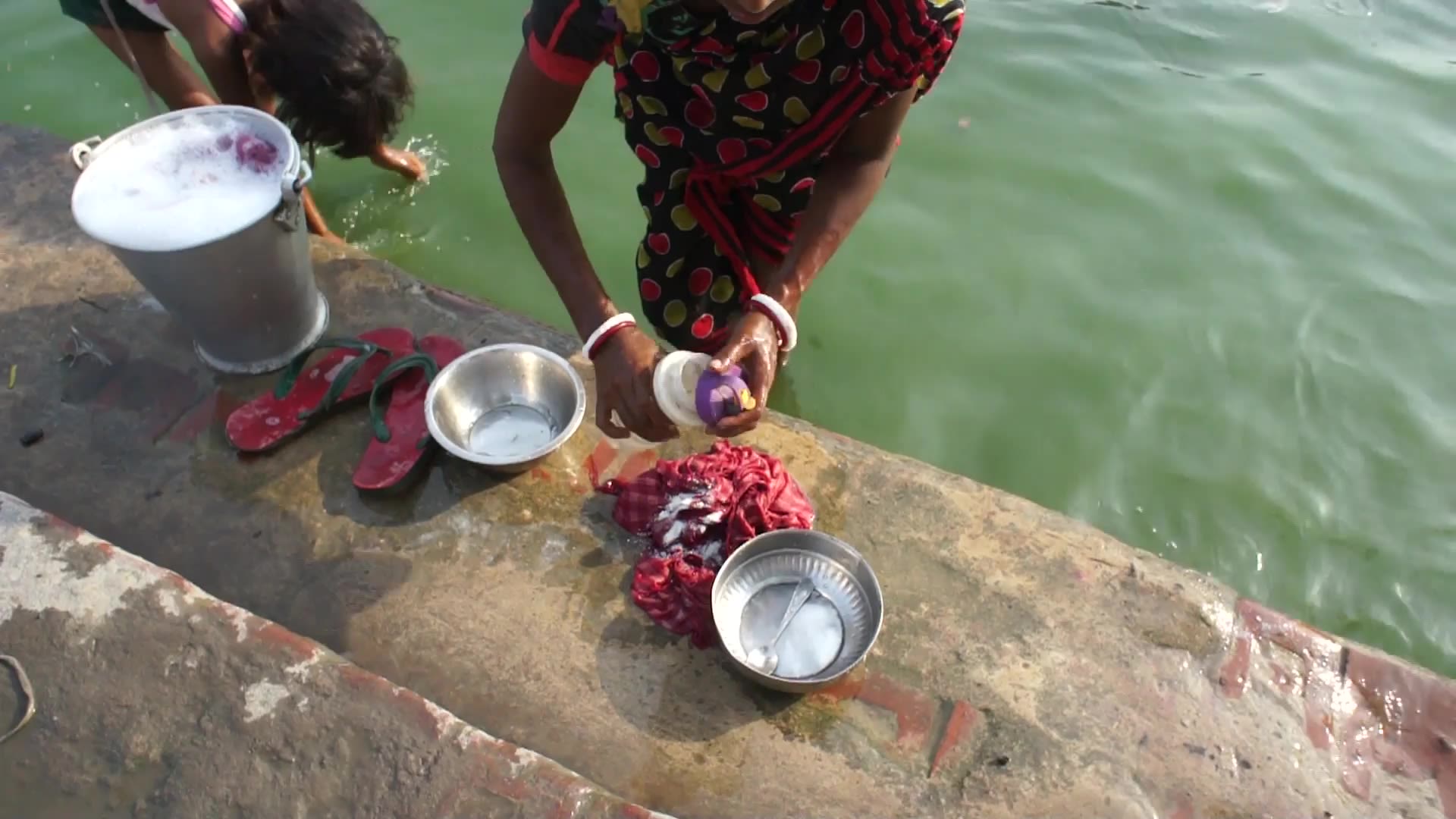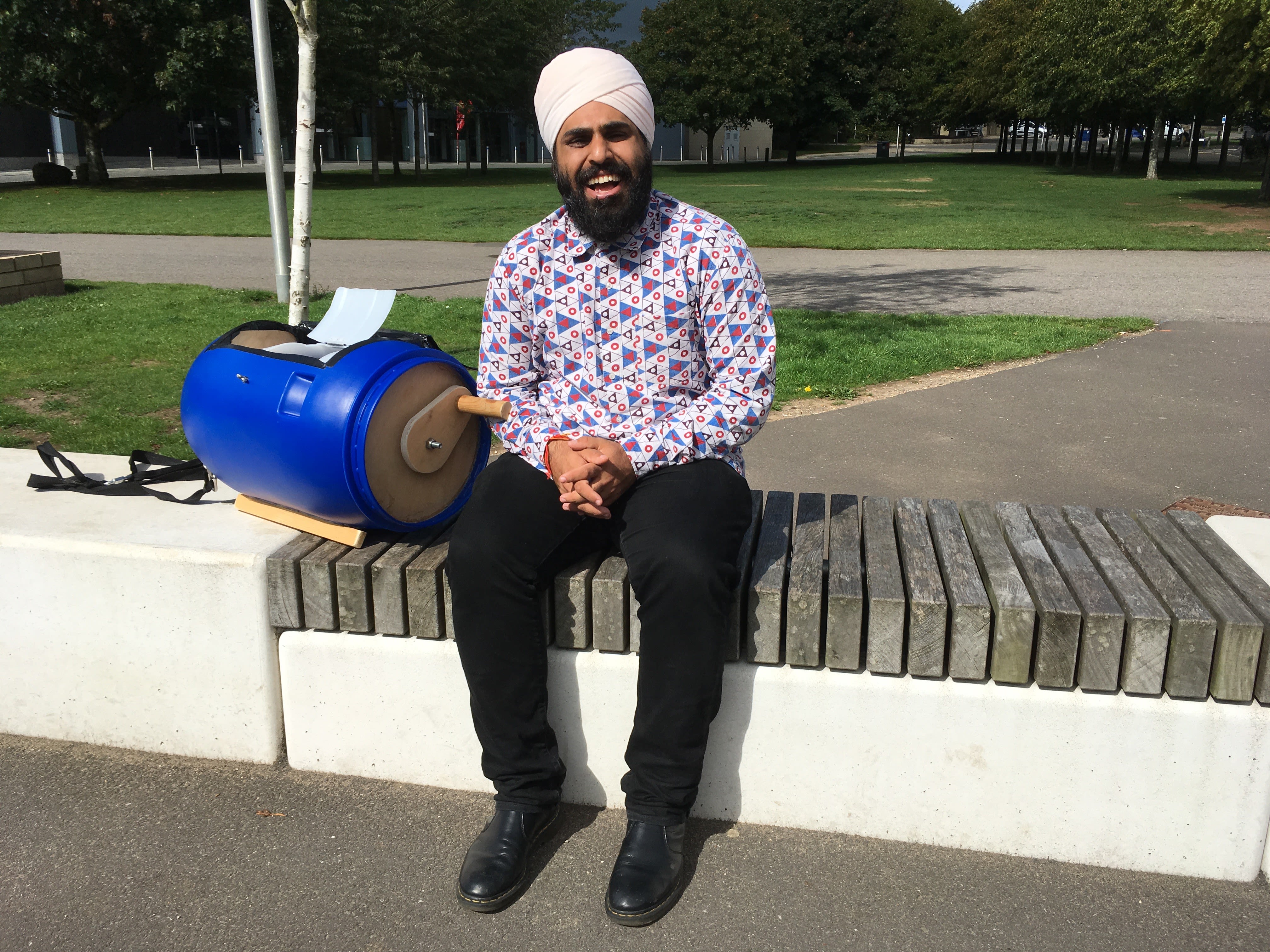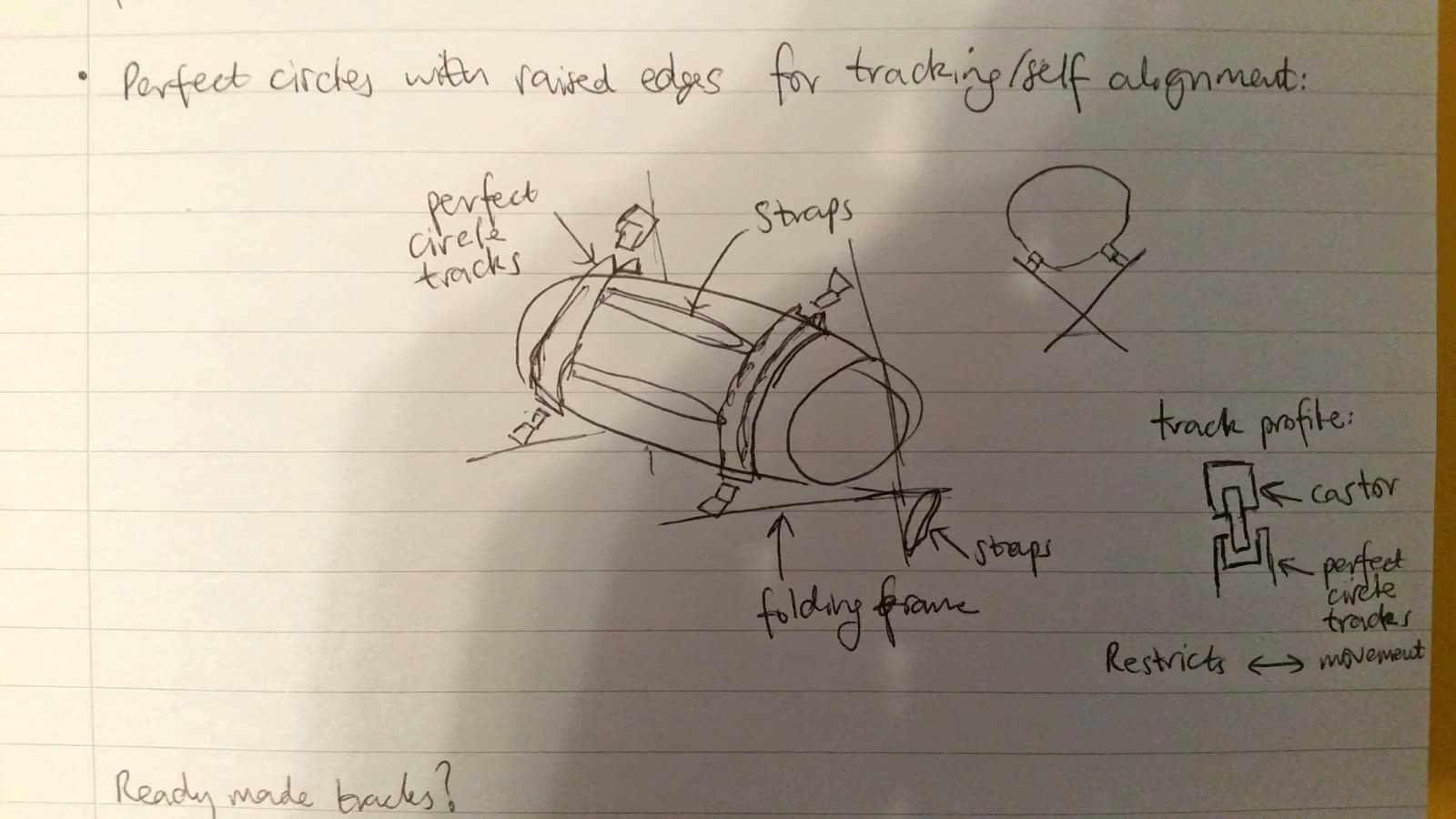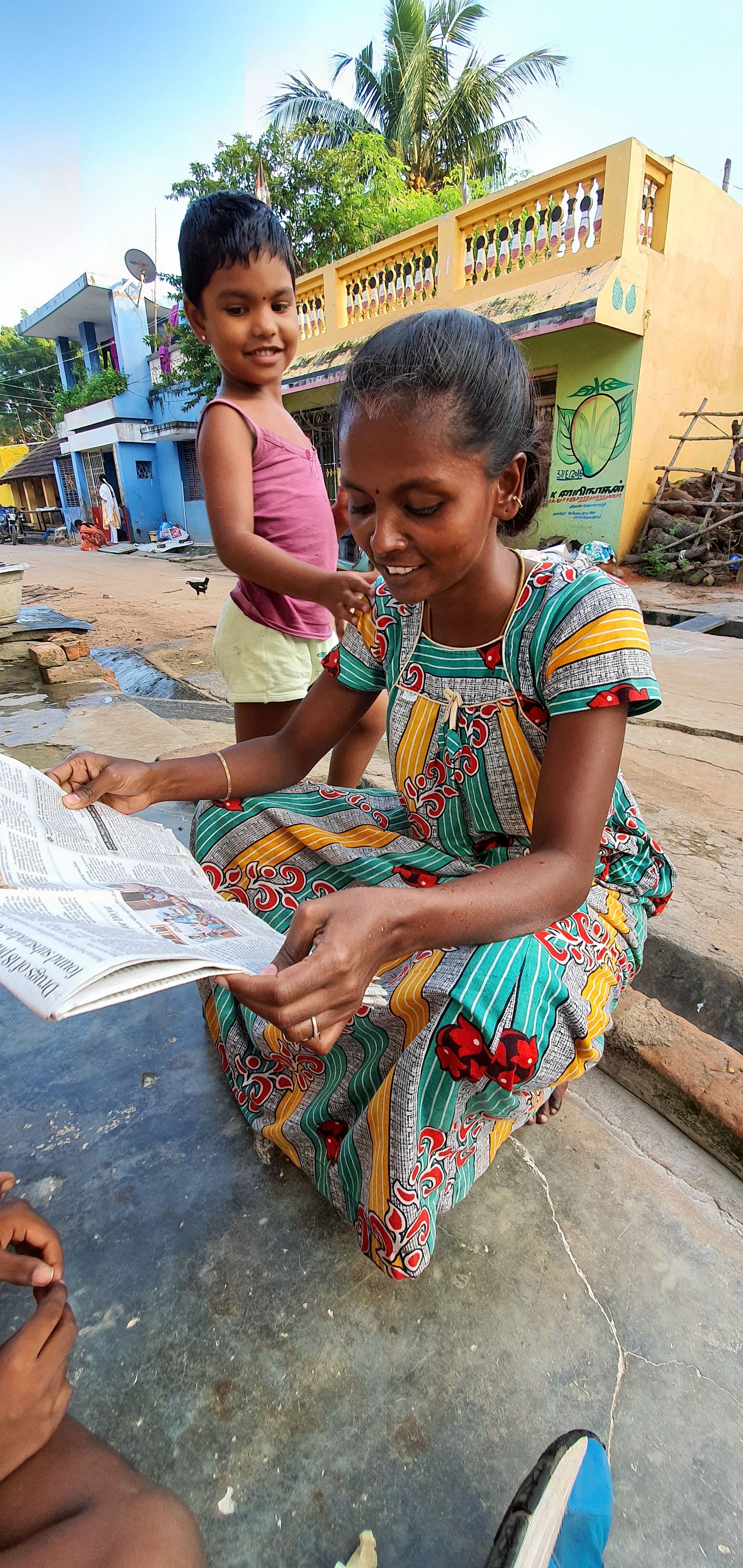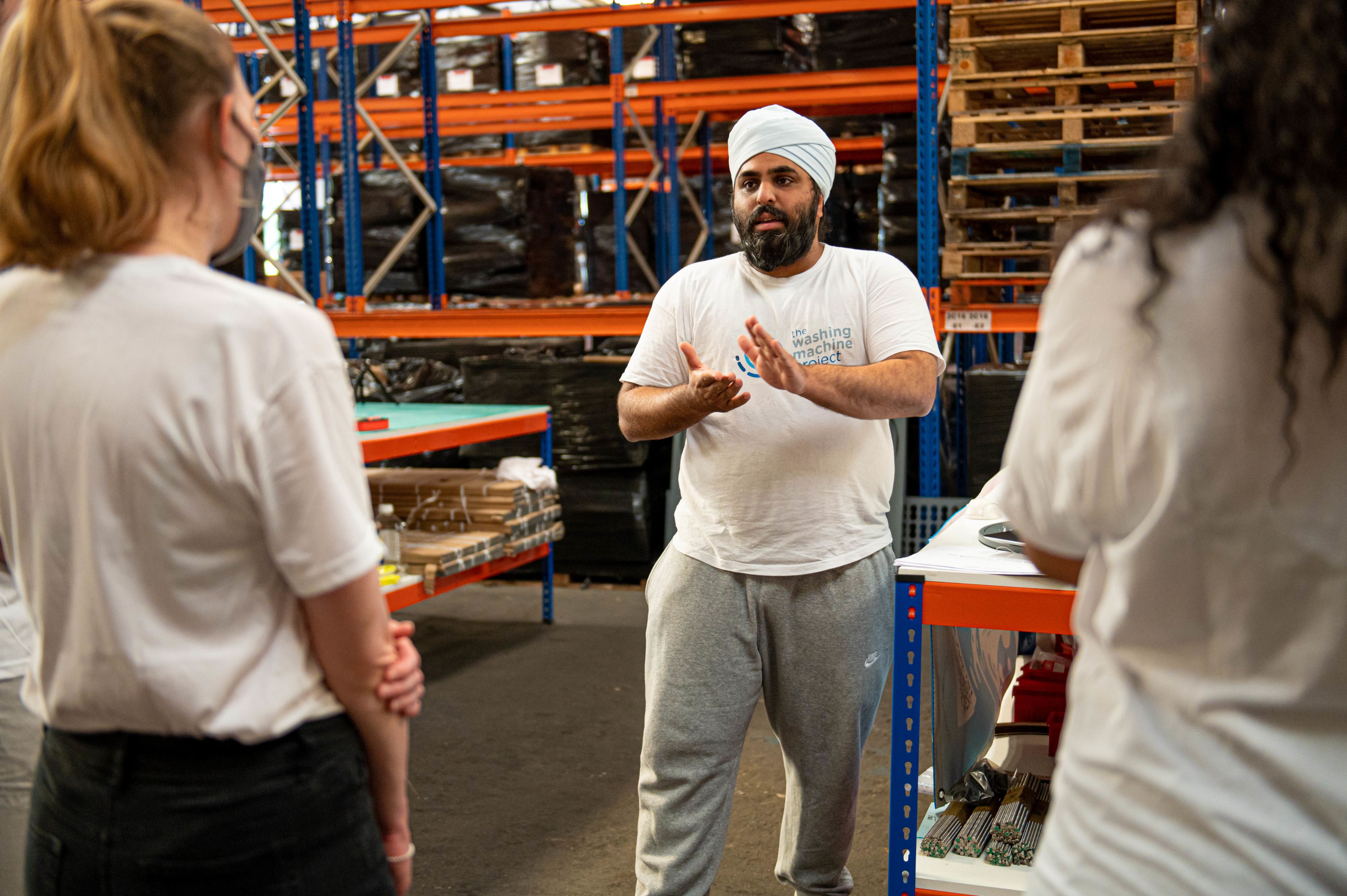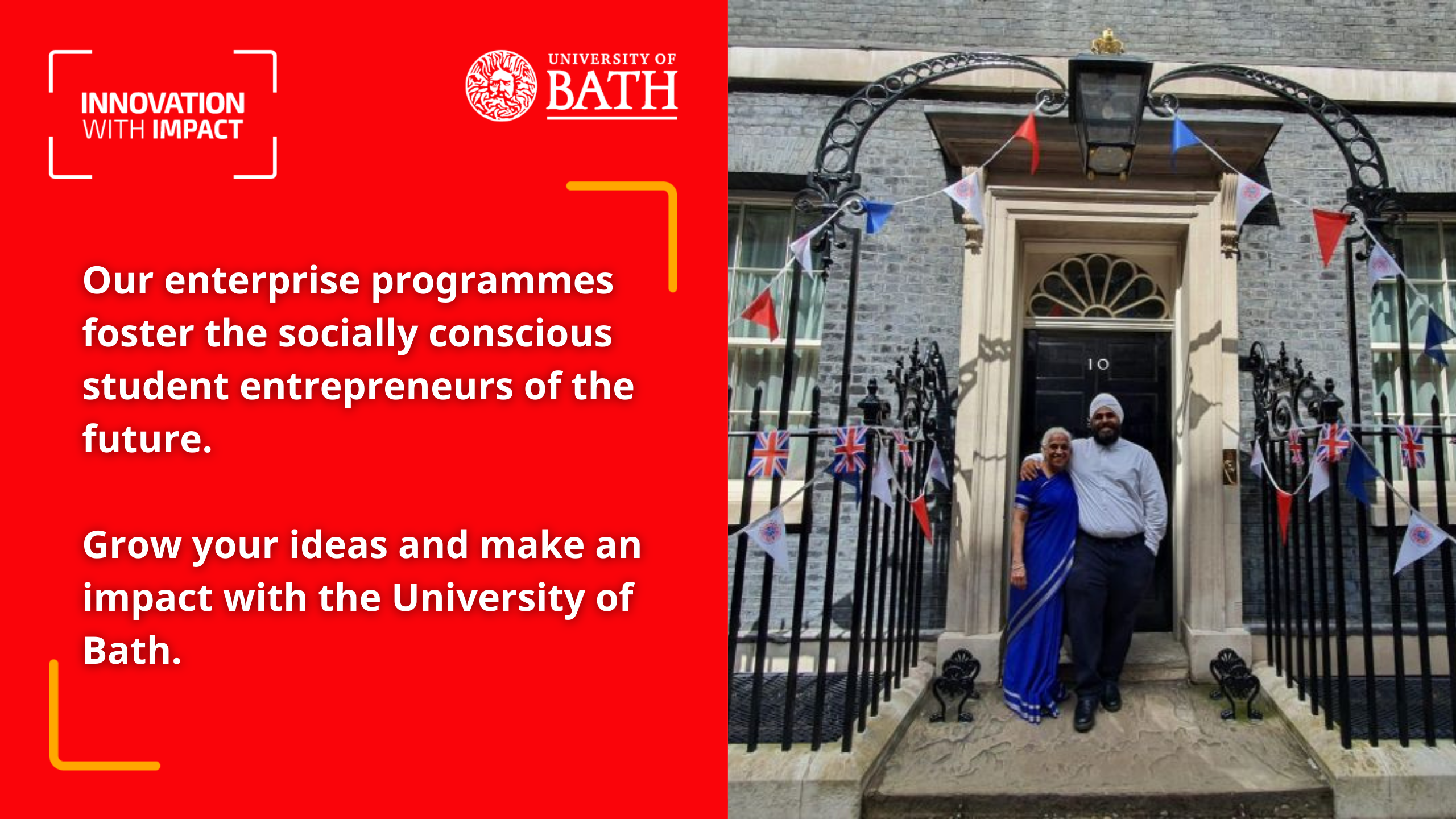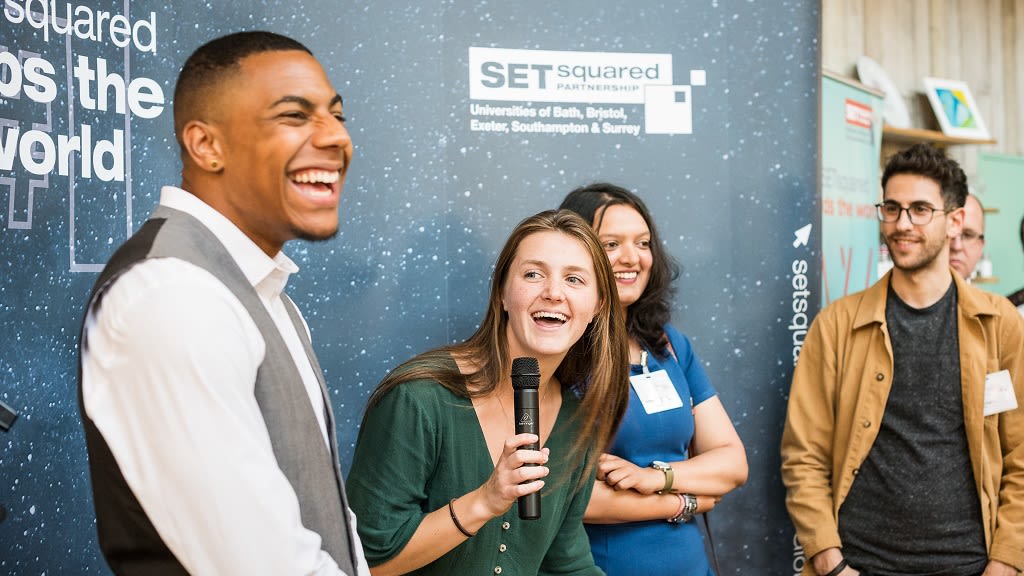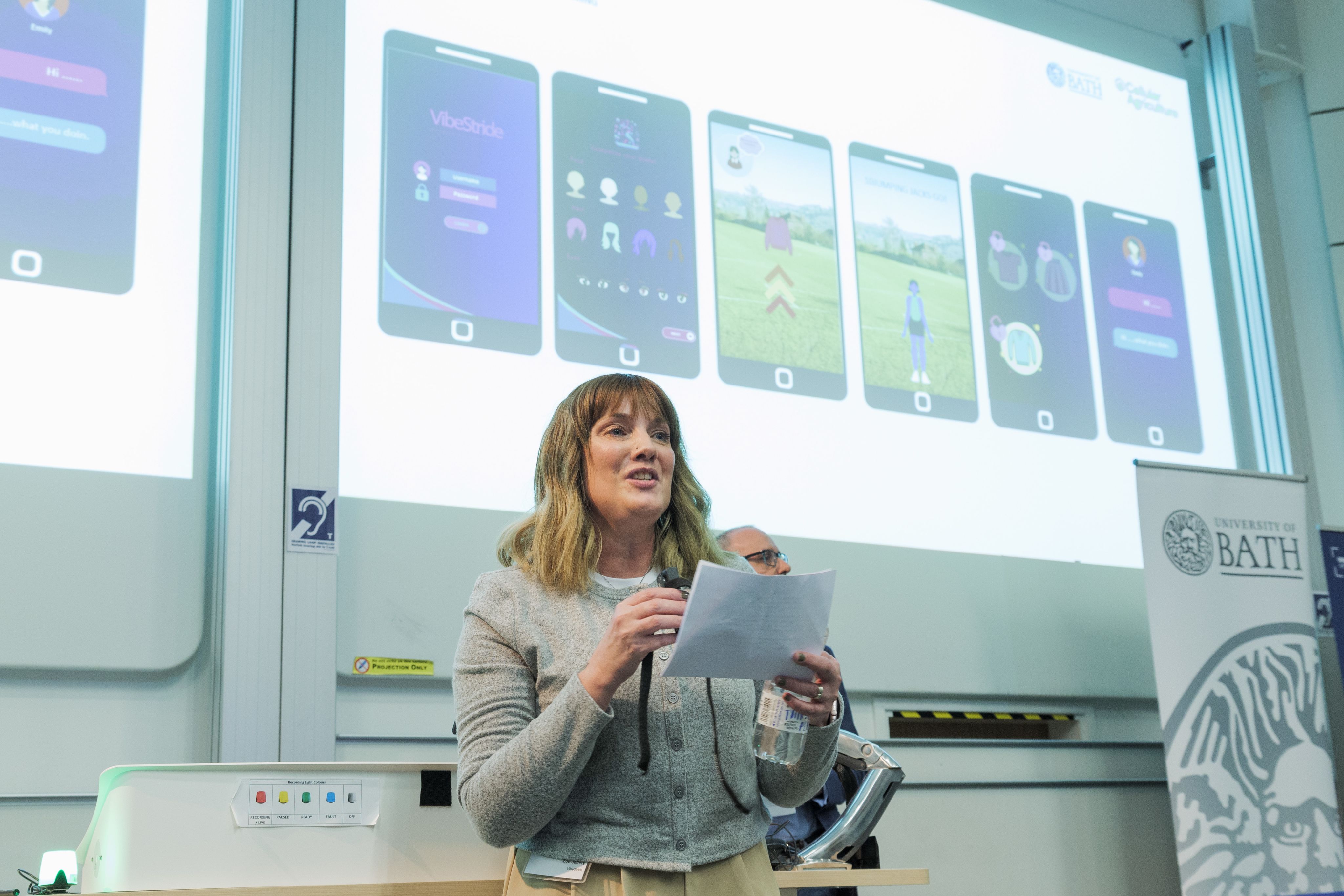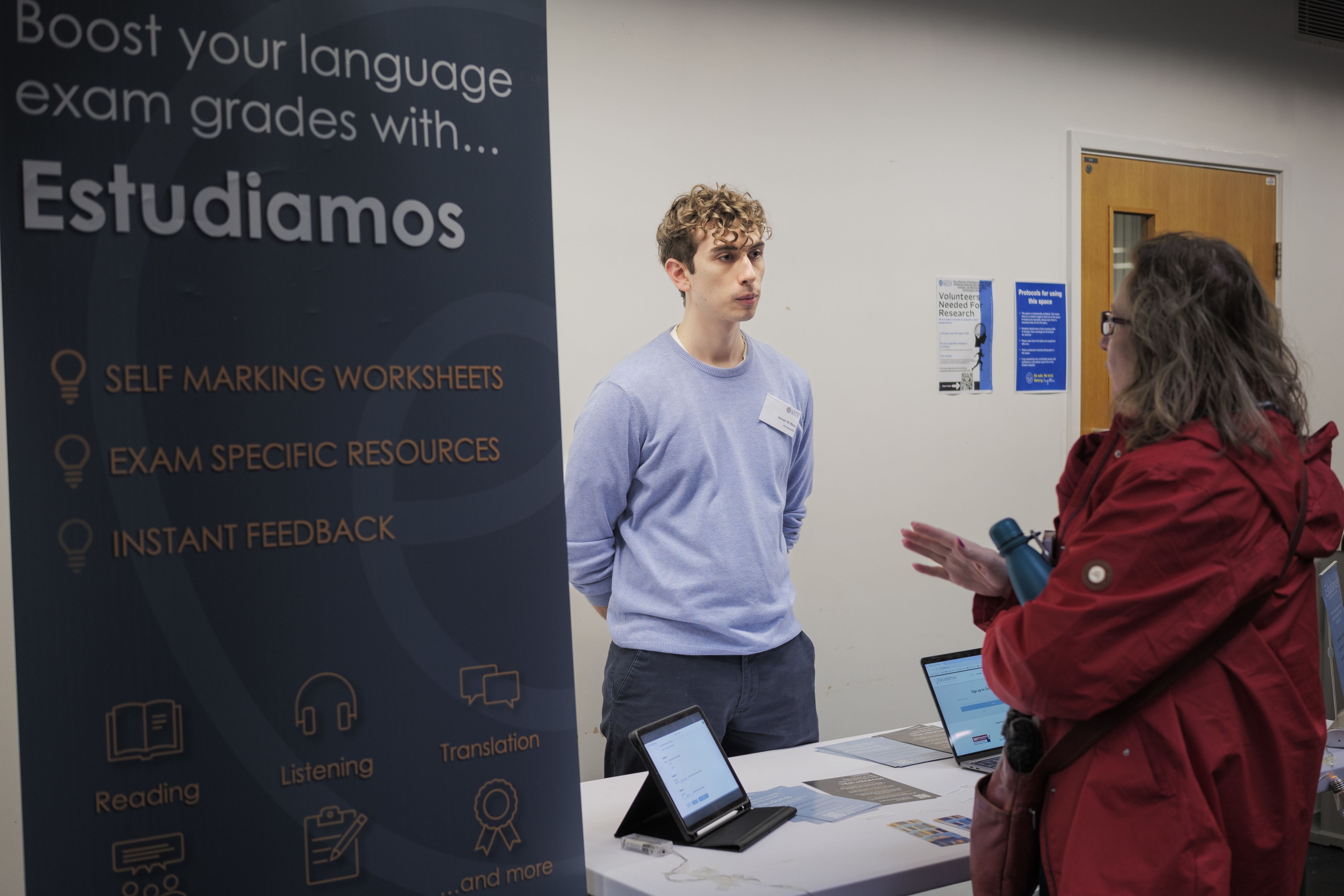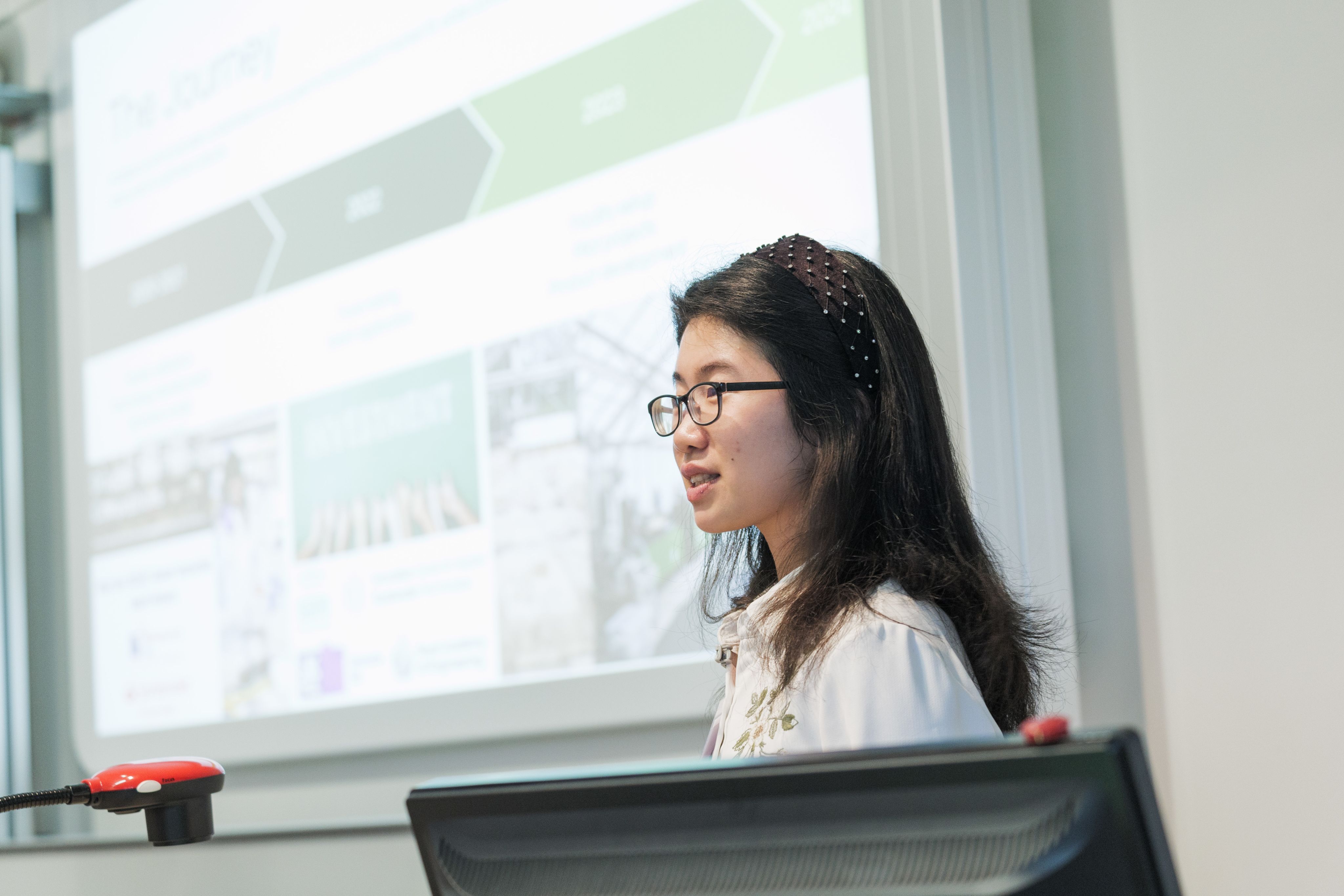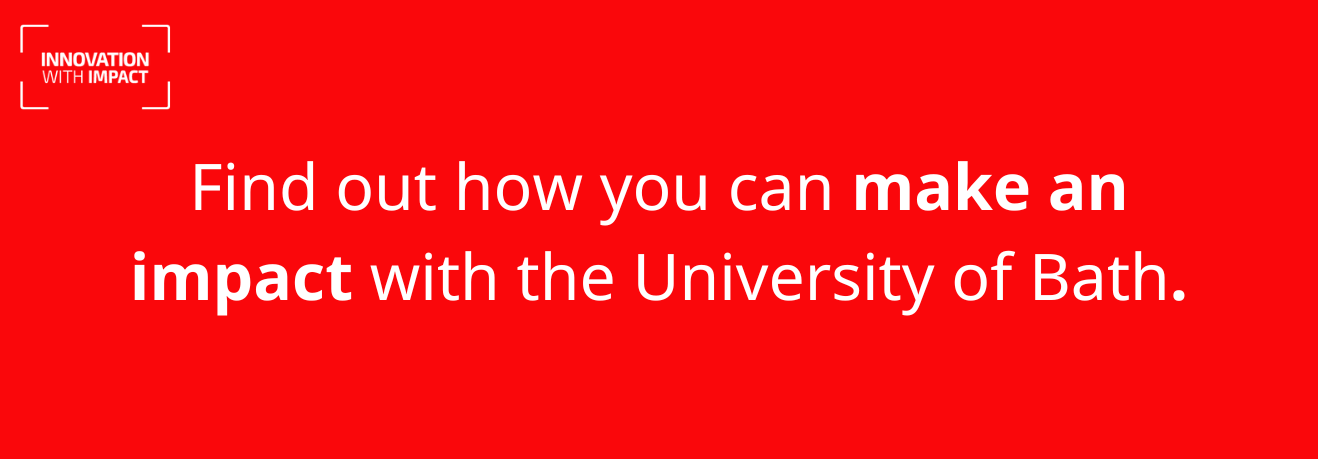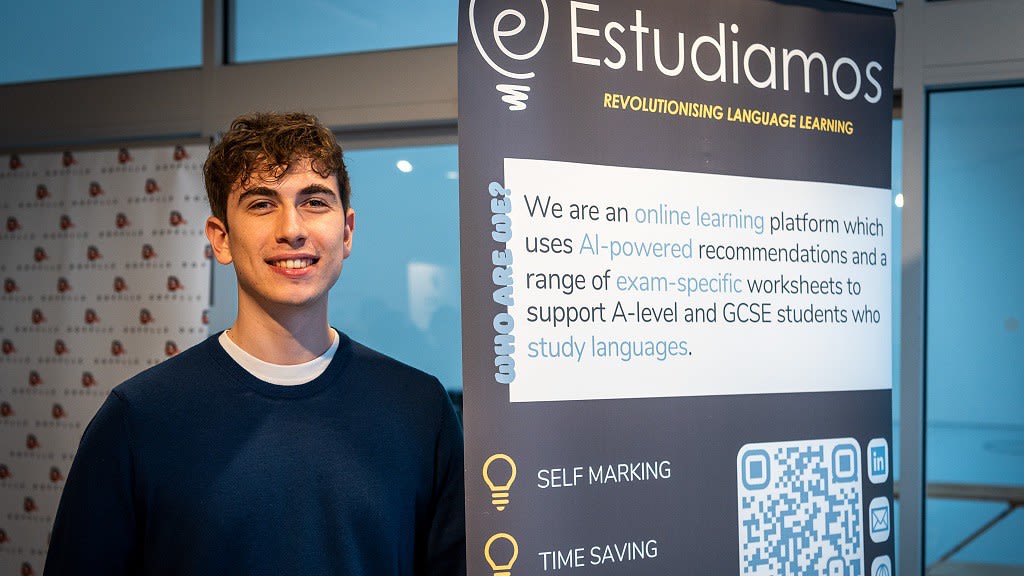Transforming Laundry: From Promise to Global Impact
Navjot Sawhney explains how the Alumni Innovation Award from the University of Bath supported his mission to liberate people around the world from the toil of hand-washing clothing.
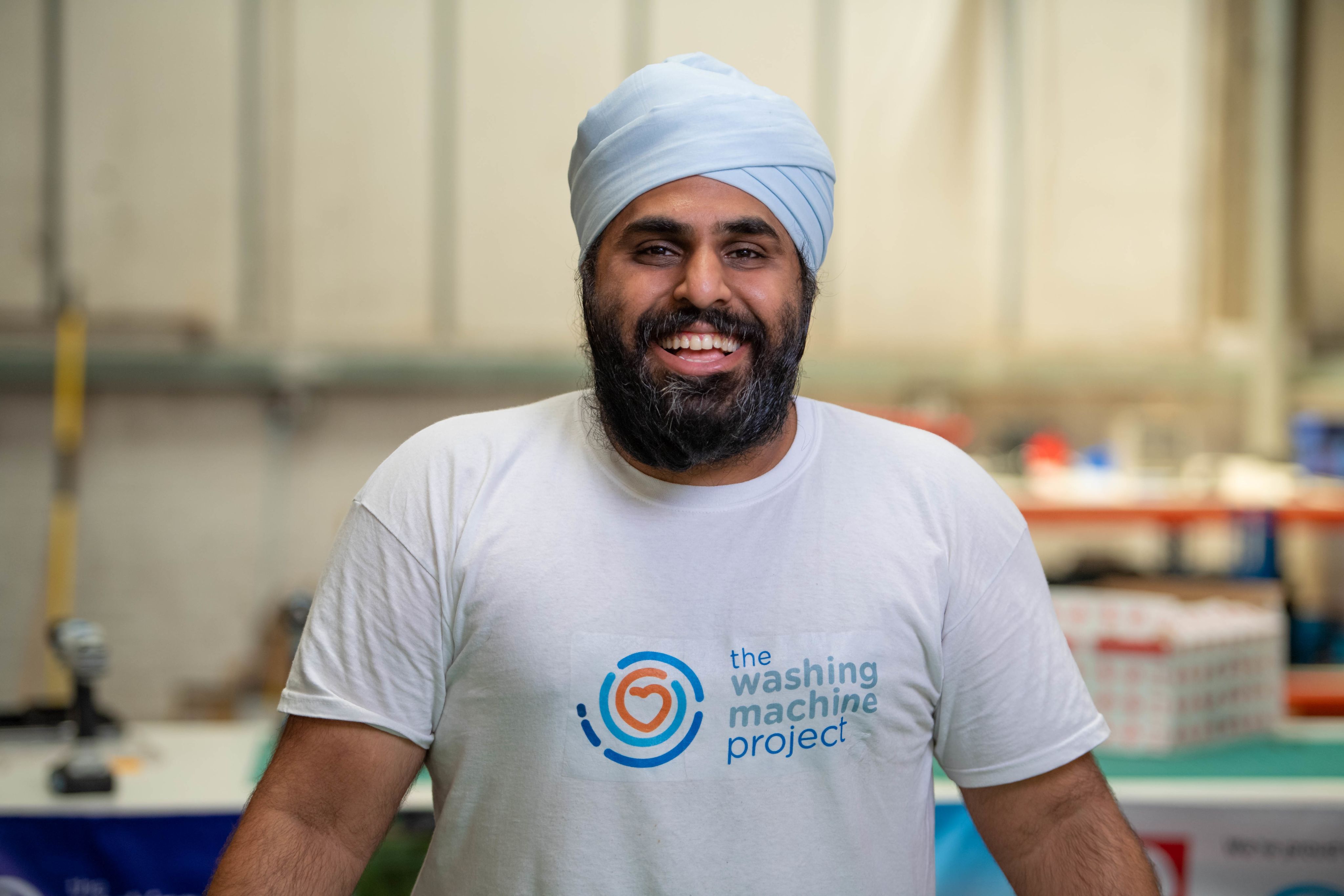
The Divya drum has a 5KG capacity but only uses 10 litres of water per cycle, as opposed to 30 litres used by the average electric washing machine. This is crucial in water-scarce humanitarian settings like refugee camps. It’s also 75% quicker than hand-washing, giving people more time to learn, work and relax.
It works similarly to a manual washing machine. First, in go the clothes, water and powdered soap. Then the barrel is rotated by hand for two minutes, before leaving the clothes to soak. The water is emptied using a tap at the base of the barrel. This process is repeated with fresh water, for the rinse cycle.
Hot on the heels of the Oxfam partnership, Navjot secured a £2,000 grant from the Santander Award and a £12,000 grant from the University of Bath Alumni Innovation Award.
The Alumni Innovation Award is a grant of up to £20,000 to help alumni bring an innovative idea to market. This includes a year of virtual membership at SETSquared, Bath’s award-winning business incubator. The scheme is open to applications from final-year students, post-graduates and researchers at the University of Bath, with the grant assisting with living costs throughout the award year, allowing winners to commit most of their time developing their business. Winning the grant was a pivotal moment for Navjot.
“The University not only gave me the contacts and connections and the support, but it put its money where its mouth was, so to speak. That was so crucial and vital. It allowed me to do the work I need to do.”
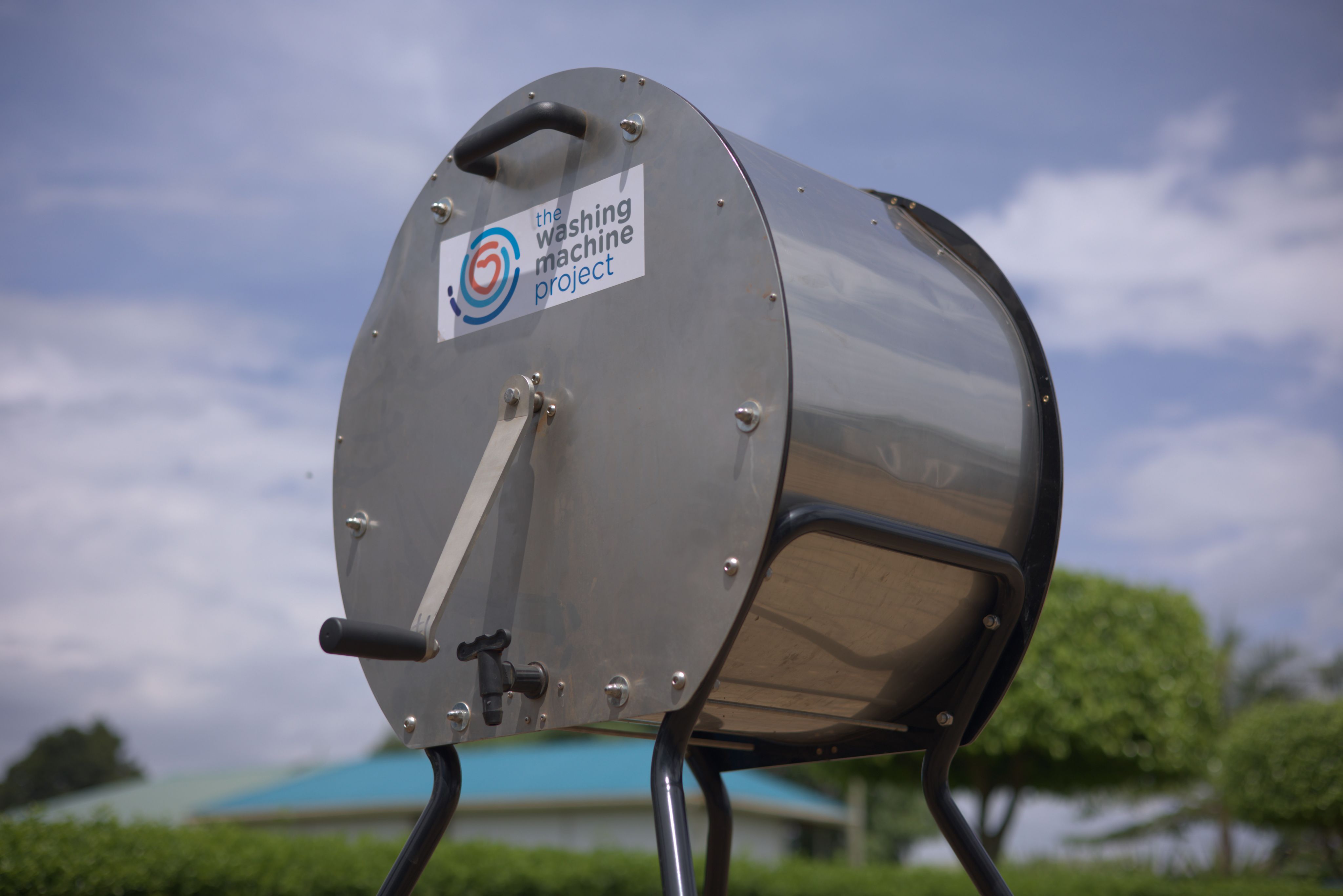
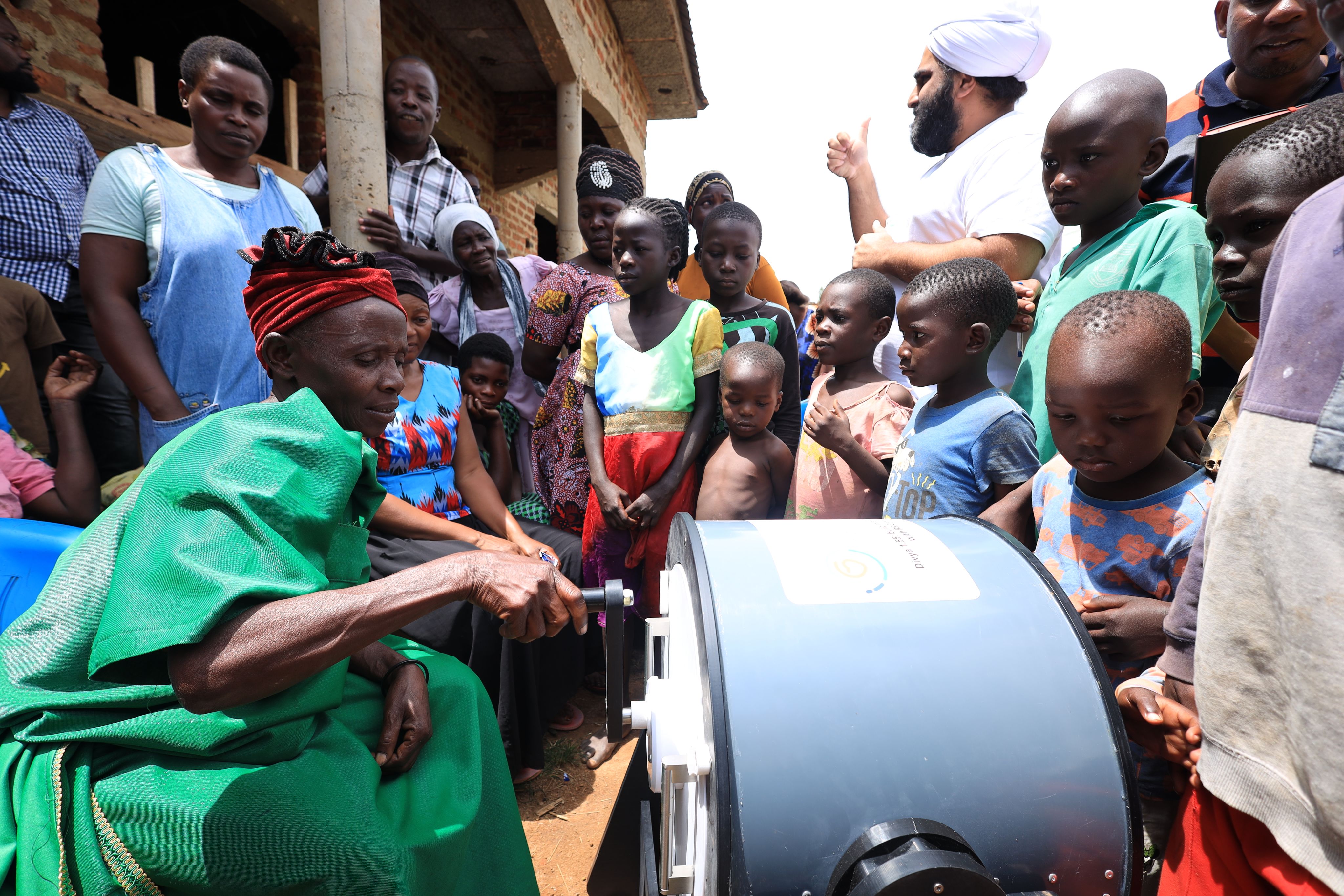
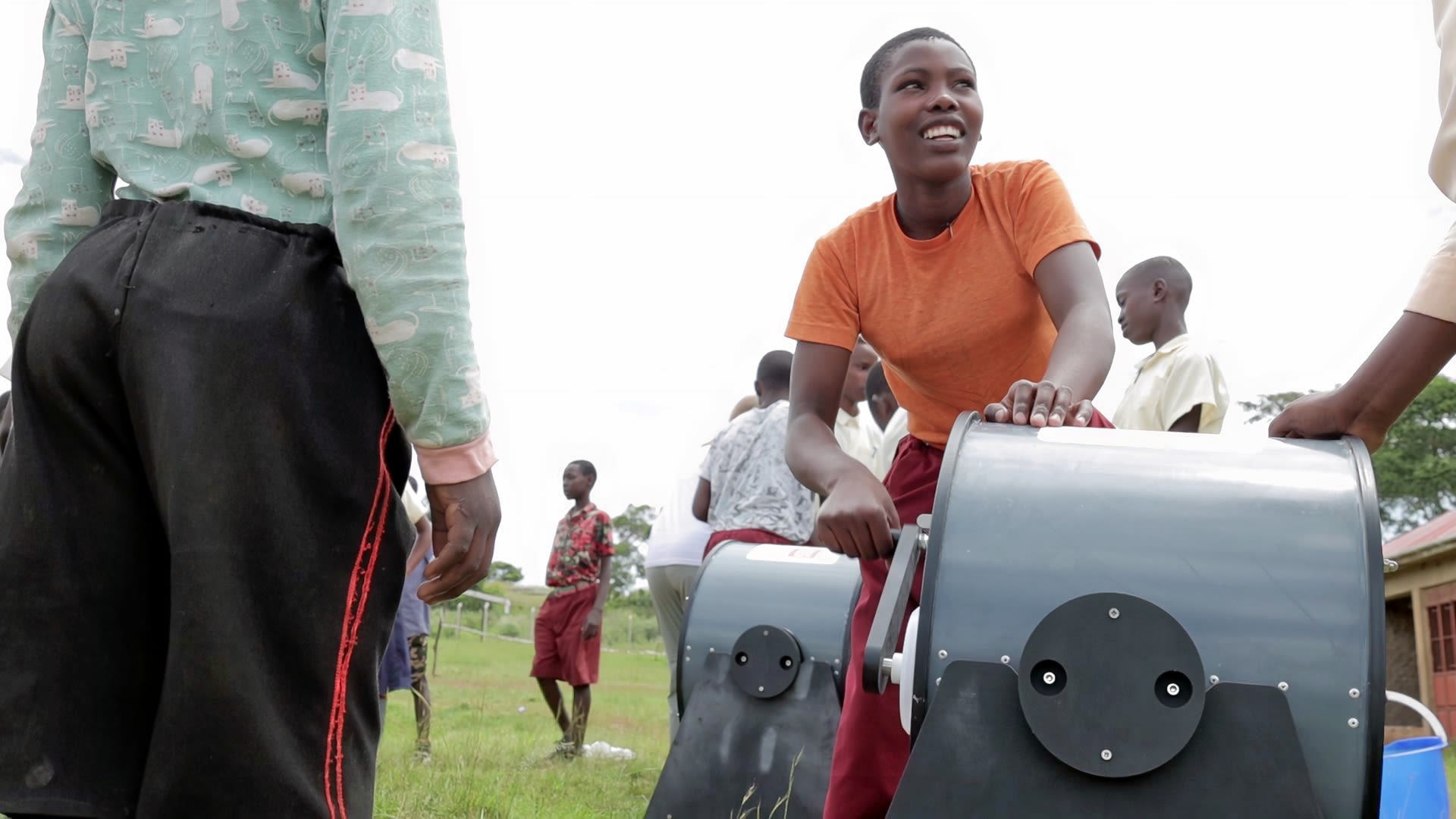
Since its foundation in 2018, the University of Bath Alumni Innovation Award has helped 13 students develop their entrepreneurial ideas into a reality. Previous winners include Zoe Jeffery, founder of augmented reality video gaming app VibeStride, which aims to transform physical education in school, and Eoin Sharkey, designer of The BioFactory, an all-in-one latrine and waste processing plant that utilises biodigestion to convert human waste into cooking fuel and soil conditioner.
The programme is developed through the Enterprise Bath programme, and managed by Siobain Hone, Graduate Enterprise Manager for the University. Having been in the post since 2004, Siobain has had the pleasure of working with countless student entrepreneurs. She says that the Innovation Award is for "our biggest and most-ambitious" thinkers.
"Only final years can apply and one of the best bits of my job is spotting those first and second years who have the potential to win the Award and supporting them through their degrees until they are ready to commit full time to their business," she says.
"Seeing really good ideas come to life and knowing that you've played a small part in helping and supporting them is very gratifying."
Since its launch, the Innovation Award has helped students develop a range of businesses, from a dental technology start-up, to a company creating beauty products from flower waste. Discussing the support offered to award-winners, Siobain says that the programme gives nascent entrepreneurs a decent chance of making a success of their idea post-graduation. "The Awards allow us to give them so many opportunities - and being part of SETsquared means we can help with investment, provide mentorship, and open up more options for them," she says. "It's a natural progression from our Entrepreneurship Programme and I think really sets us apart amongst other Universities."
"What we offer adds tremendous value to the student offering at the University of Bath."
When asked about Navjot's time in the Enterprise Bath programme, Siobain reflects on how open the future CEO was to feedback around his idea and business plan. "He was willing to follow up on every suggestion and really try and make things work," she says.
"I love an idea that has the potential to go global and do good and Nav's work is something of which I am very proud."
The Innovation Award is a grant of up to £20,000 to assists with living costs throughout the year so that winners can commit most of their time to developing their business.
The Innovation Award is a grant of up to £20,000 to assists with living costs throughout the year so that winners can commit most of their time to developing their business.
Zoe Jeffery, creator of VibeStride, Alumni Innovation Award winner
Zoe Jeffery, creator of VibeStride, Alumni Innovation Award winner
Iacopo Di Rico, founder of Estudiamos, Alumni Innovation Award winner
Iacopo Di Rico, founder of Estudiamos, Alumni Innovation Award winner
Jinghui Liang of LabCycle Ltd, Alumni Innovation Award winner
Jinghui Liang of LabCycle Ltd, Alumni Innovation Award winner
See how the University of Bath supports student entrepreneurs to make an impact
To date, The Washing Machine Project has a presence in 15 countries including Poland to help Ukrainian refugees wash their clothing in an humanitarian aid centre. There have been partnerships with other prominent international NGOs, such as UNCHR, Save The Children, Care International, and Plan International, with an even bigger collaboration to come, as Navjot explains.
“We’re teaming up with one of the biggest appliance manufacturers in the world. This will lead to another 150,000 people impacted over the next five years.”
The new collaboration with the Whirlpool Foundation will deliver 10,000 manual washing machines to India, Mexico, Brazil, Republic of Congo, Uganda, and Sudan. It's estimated this will help unlock approximately 17 million hours for women and girls, improving quality of life and halving overall water usage.
This exciting partnership will allow The Washing Machine Project to fulfil in excess of 3,000 washing machine orders and scale up across numerous countries.
Navjot’s social enterprise not only makes a humanitarian impact but also creates employment opportunities. It employs 10 staff members across Bristol, London, Lisbon and Texas. Among them are the University of Bath alumni Hugo Morisetti (MA, International Development with Conflict, and Humanitarian Action, 2018-2019) and until recently Andrew Calwell (MA, Engineering, Innovation and Engineering Design, 1999-2003).
The news of the washing machine’s far-reaching impact has come as no surprise to Dr Oliver Walton, Director of Studies for the MSc in Humanitarianism, Conflict and Development at the University of Bath.
“My most lasting memory of Navjot is his incredible commitment. On our field trip to Jordan, he spent all his time networking with humanitarian agencies. He’s a coordinator, a motivator, and a ’super rep’ for the course.”
Navjot is quick to repay the compliment, citing Dr Walton as the “person that really believed in his innovation” and whose support and first-hand introductions were the springboard for his success. Behind every great innovator, you’ll find a fabric of supporters and the University of Bath is woven into the foundation of this social enterprise.
“The University has been integral to our growth and has fuelled our innovation, he says. "Whenever we've had a problem, the university has been there. From the technicians in the engineering lab who’ve 3D printed for us when our machines packed up, right up to the Chancellor.”
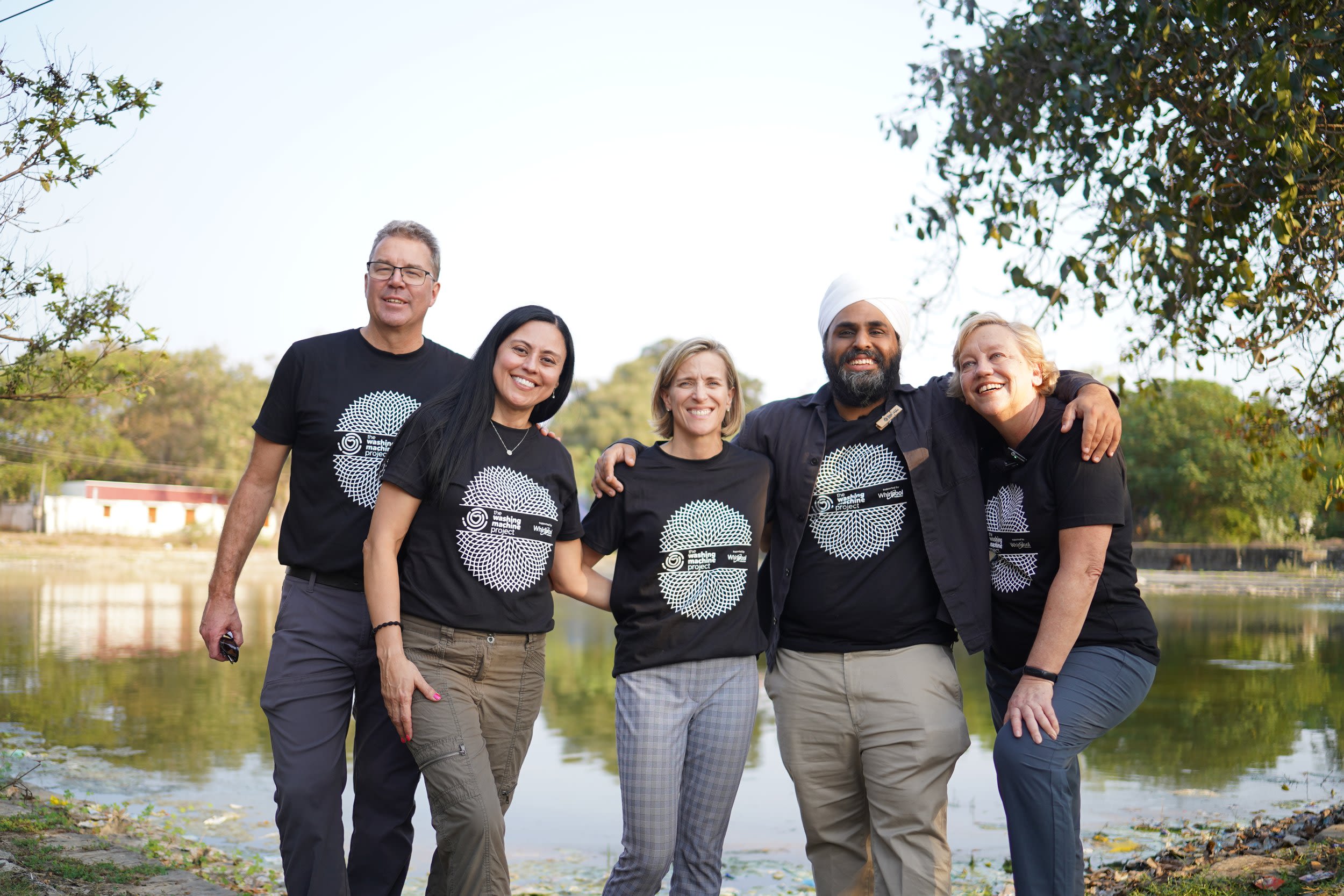
“The University of Bath is something that will be with you forever. You always have the fondest memories; you always stay connected.”

Having already made waves in the washing machine sector, Navjot is now shifting his focus to the refrigeration and lighting sector. He reflects:
“I remember when Divya and her family had to consume all their food in one day because they didn’t have refrigeration.”
This observation serves as a reminder to Navjot of the inadequacy of current domestic appliances on the market for people living in refugee camps or with low incomes.
Traditional appliances need a stable electricity supply and a steady income stream to keep them running. Navjot’s ambition to innovate in this space knows no bounds:
“I want to change that and see our social enterprise to become the Dyson of the humanitarian world. I just want to keep creating solutions that help people.”
And what of Divya, the friend from Kallipalayam, who once toiled on her hands and knees washing clothing and inspired this innovation? Navjot paid her a visit in India recently.
“She told me: ‘lots of people promise but few deliver. You have made good on your promise. Please continue to help people like me around the world’. So that’s what I’m going to do and the University of Bath will most certainly be there along the journey.”
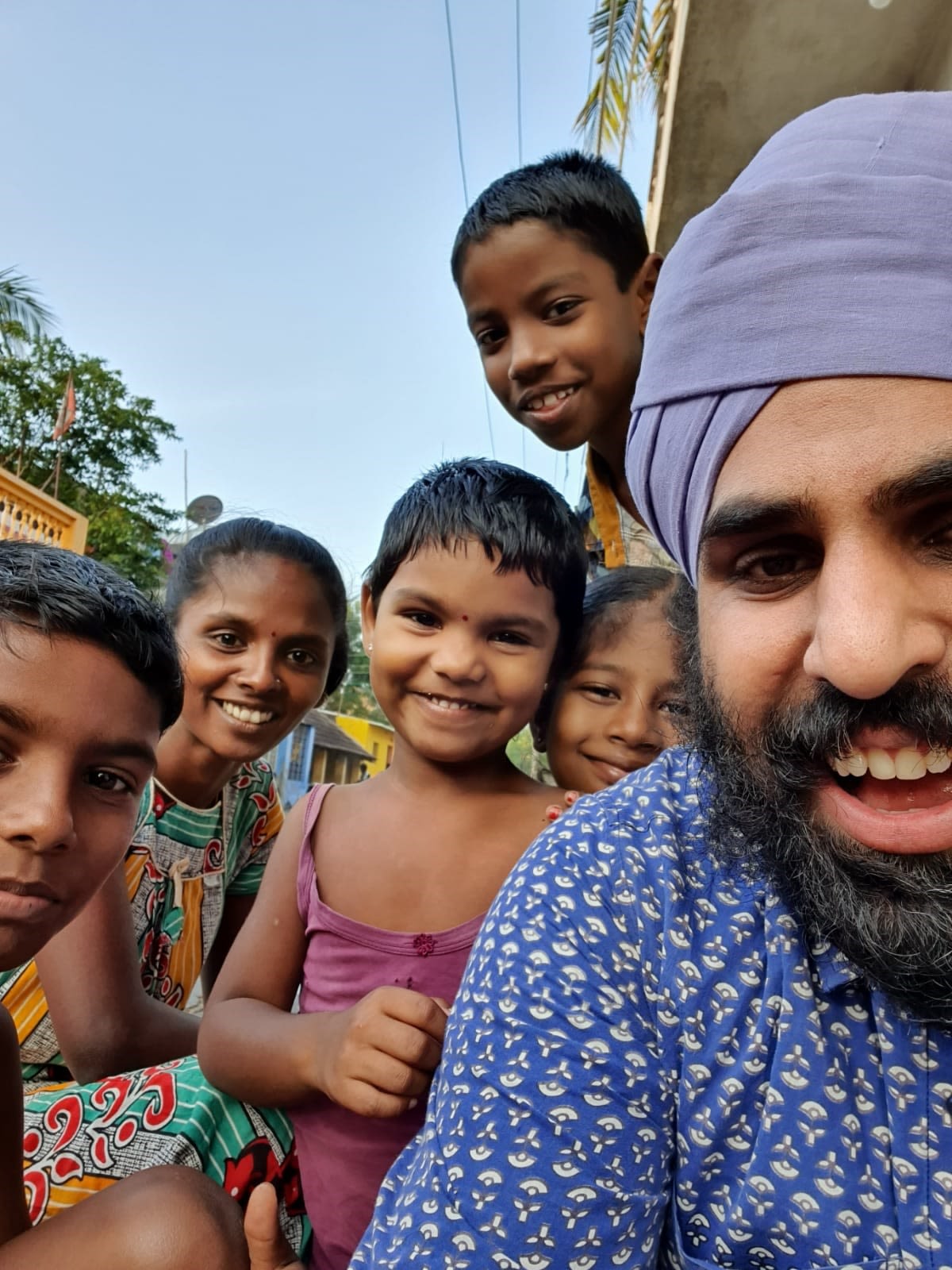
Find out more about our students' innovation with impact
2023 Alumni Innovation Award winners
Find out about the 2023 Alumni Innovation Award winners in this news article.
2022 Alumni Innovation Award winner interview
2022 Alumni Innovation Award winner and Dopplle co-founder Izzy Hurst explains how the University of Bath supported her to launch her sustainable clothing app.

